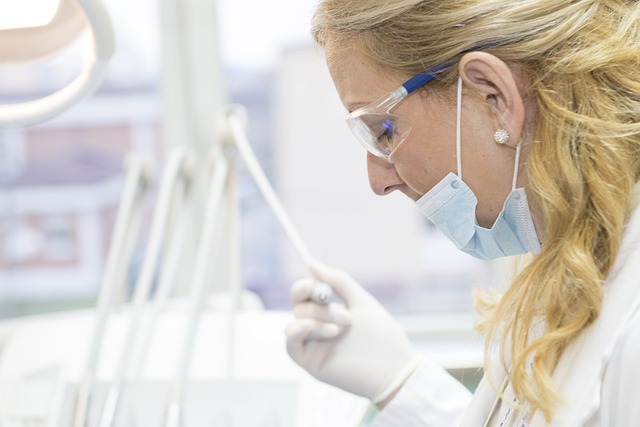Understanding Sperm Donation Process and Requirements
Sperm donation plays a crucial role in helping individuals and couples achieve their dreams of parenthood through assisted reproductive technologies. This comprehensive process involves rigorous medical evaluations, psychological assessments, and ongoing health monitoring to ensure the safety and quality of donated genetic material for recipient families.

Understanding Sperm Donation Process and Requirements
Sperm donation represents a vital component of modern reproductive medicine, offering hope to countless individuals and couples facing fertility challenges. The process involves healthy men voluntarily providing sperm samples that undergo extensive testing and screening before being used in various fertility treatments. This altruistic act requires significant commitment, as donors must meet strict eligibility criteria and participate in comprehensive medical evaluations that can span several months.
What Are Sperm Donation Center Screening and Eligibility Tests?
Sperm donation centers implement rigorous screening protocols to ensure donor suitability and recipient safety. Initial eligibility assessments typically examine age requirements, with most centers accepting donors between 18 and 39 years old. Physical health evaluations include comprehensive medical examinations, detailed family medical histories extending back three generations, and lifestyle assessments covering diet, exercise habits, and substance use patterns.
Psychological evaluations form another critical component, involving interviews with licensed mental health professionals to assess emotional stability and motivation for donation. Educational and occupational backgrounds are also reviewed, though requirements vary significantly between facilities. The entire screening process can take 2-3 months, with only approximately 1-5% of applicants ultimately qualifying as donors.
How Do Centers Provide Confidential Sperm Collection Services?
Confidentiality remains paramount throughout the sperm collection process, with centers implementing strict privacy protocols to protect donor identities and personal information. Collection facilities feature private rooms equipped with comfortable seating, entertainment options, and secure specimen containers. Staff members are trained in discretion and confidentiality procedures, ensuring donors feel comfortable throughout their visits.
Collection scheduling accommodates donor availability, with most centers offering flexible appointment times including evenings and weekends. The typical donation schedule requires 2-3 visits per week for 6-12 months, depending on center requirements and donor commitment levels. All personal information is stored in secure databases with limited access, and many programs offer anonymous donation options where donor identities remain permanently confidential.
What Genetic and Infectious Disease Testing Do Donors Undergo?
Comprehensive genetic and infectious disease testing protocols ensure the health and safety of both donors and future offspring. Genetic screening examines family histories for hereditary conditions including cystic fibrosis, sickle cell anemia, Tay-Sachs disease, and various chromosomal abnormalities. Advanced genetic testing may include carrier screening for hundreds of genetic conditions, depending on donor ethnicity and family background.
Infectious disease testing occurs at multiple intervals throughout the donation process. Initial screenings test for HIV, hepatitis B and C, syphilis, gonorrhea, chlamydia, and cytomegalovirus. Follow-up testing occurs every 3-6 months during active donation periods, with additional quarantine periods for samples to ensure no window-period infections exist. Some centers also test for less common infectious agents based on donor travel history or risk factors.
| Service Type | Provider Examples | Cost Estimation |
|---|---|---|
| Donor Screening | California Cryobank | $200-500 |
| Genetic Testing | Fairfax Cryobank | $300-800 |
| Collection Services | Seattle Sperm Bank | $75-150 per visit |
| Storage Fees | Xytex Corporation | $200-400 annually |
Prices, rates, or cost estimates mentioned in this article are based on the latest available information but may change over time. Independent research is advised before making financial decisions.
Long-term Commitment and Ongoing Requirements
Successful sperm donation requires substantial long-term commitment from qualified donors. Most programs expect donors to maintain consistent donation schedules for 6-12 months, with some extending up to two years. During this period, donors must adhere to lifestyle guidelines including abstaining from alcohol and recreational drugs, maintaining healthy diets, and avoiding high-risk sexual behaviors.
Ongoing medical monitoring includes regular health check-ups, updated medical questionnaires, and periodic re-testing for infectious diseases. Donors must promptly report any changes in health status, medication use, or family medical history. Some programs also require donors to limit the number of offspring created from their donations, typically capping at 25-30 pregnancies per donor to minimize genetic diversity concerns in local populations.
Impact and Considerations for Recipients
Sperm donation significantly impacts recipient families, offering opportunities for pregnancy when male factor infertility, genetic concerns, or single parenthood situations exist. Recipients can often access detailed donor profiles including physical characteristics, educational backgrounds, medical histories, and sometimes audio interviews or childhood photos, depending on program policies and donor consent levels.
Success rates for procedures using donor sperm vary based on recipient age, fertility diagnosis, and treatment method chosen. Intrauterine insemination with donor sperm typically achieves pregnancy rates of 10-20% per cycle, while in vitro fertilization procedures show higher success rates of 40-60% per cycle for women under 35 years old.
The sperm donation process represents a complex intersection of medical science, ethical considerations, and human compassion. Through rigorous screening protocols, confidential collection services, and comprehensive genetic testing, sperm banks ensure the highest standards of safety and quality for all parties involved. This carefully regulated system continues to evolve with advancing medical technologies and changing social attitudes toward family building, ultimately serving the fundamental human desire to create and nurture new life.
This article is for informational purposes only and should not be considered medical advice. Please consult a qualified healthcare professional for personalized guidance and treatment.




